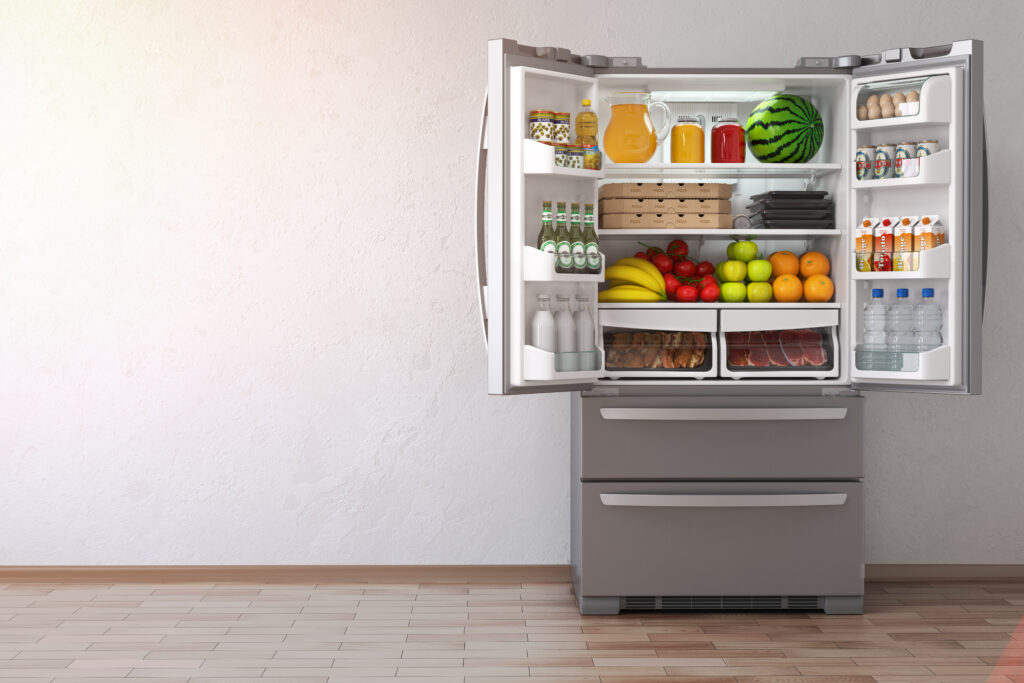Navigating the world of kitchen appliances, particularly refrigerators, is essential for every household. Understanding the lifespan of your fridge, recognizing signs of wear, and knowing when to replace it can save you both time and money. This blog will explore critical aspects of refrigerator maintenance and functionality, providing you with the knowledge needed to make informed decisions about your appliance.
Refrigerator Longevity
Refrigerators are one of the most crucial appliances in our kitchens, keeping our food fresh and safe to consume. The lifespan of a refrigerator can vary significantly based on factors such as brand, model, usage, and maintenance. Generally, a well-maintained refrigerator can last between 10 to 15 years. Some high-quality models may even surpass this range, providing reliable service for up to 20 years with proper care.

The longevity of a refrigerator is heavily influenced by its maintenance routine. Regular cleaning of the interior and exterior, along with timely servicing of its mechanical parts, can prolong its life. For example, dust and debris accumulation on the condenser coils can impede the fridge’s cooling efficiency, leading to increased strain on the motor and potentially shortening its lifespan. Therefore, vacuuming the coils periodically is crucial in extending the appliance’s life.
Investing in a high-quality refrigerator and adhering to a consistent maintenance schedule can maximize its lifespan. It’s also wise to keep an eye on technological advancements, as newer models are often more energy-efficient and may offer better long-term value despite the potential for a higher upfront cost.
When Should I Replace My Refrigerator?
Deciding when to get a new refrigerator is important for your kitchen and wallet. Think about replacing your fridge if fixing it costs too much, like more than half the price of a new one. Also, if your refrigerator is old, like over ten years, and keeps breaking down, it’s probably time for a new one.
New refrigerators work better and use less electricity, which is good for the environment and can save you money on your energy bills. If your old fridge isn’t cooling like it used to, or if you hear strange noises, see frost build-up, or notice leaks, these are signs that it’s wearing out.

Sometimes, older fridges can use a lot of electricity, and that can be expensive. New models are made to be more energy-saving, which helps reduce the cost of running them. They also have cool features like better temperature control, more space, and ice makers.
Before buying a new fridge, make sure to check its size, features, and how much energy it uses. This way, you can find one that fits your kitchen, meets your needs, and doesn’t cost too much to run. Upgrading your refrigerator can be a big improvement for your kitchen, making it better for storing your food and drinks.
How Do You Know When a Refrigerator is Going Bad?
Recognizing the signs of a deteriorating refrigerator can save you from unexpected spoilage and costly repairs. A refrigerator going bad often presents clear indicators that it’s time to assess its condition and possibly consider replacement. Key signs include:
- Unusual noise levels
- Insufficient cooling
- Erratic cycling
If your refrigerator becomes noisier than usual, it could indicate motor or compressor issues.
Poor cooling is another major red flag. A fridge that cannot maintain a stable temperature jeopardizes food safety and quality, leading to spoilage. This inconsistency in temperature control can stem from various problems, such as faulty thermostats, damaged seals, or clogged vents. These issues prevent the refrigerator from achieving the desired coolness, forcing it to work harder and increasing energy consumption, which is reflected in your rising energy bills.

Frequent cycling, where the fridge turns on and off more often than normal, not only consumes more power but also signifies system stress, potentially shortening the appliance’s lifespan. Moreover, physical signs of wear, like rusting or condensation, suggest structural or sealing problems. Rust can compromise the structural integrity, while condensation inside the fridge points to sealing issues, both of which are critical for efficient operation.
If your refrigerator exhibits these symptoms, it’s crucial to conduct a thorough evaluation. Sometimes, simple repairs or part replacements can extend its life. However, if these issues persist, they can lead to more significant problems, making it more cost-effective in the long run to invest in a new, more energy-efficient model. Monitoring your refrigerator’s performance and condition can prevent inconvenience and ensure your appliance functions optimally.
What Is the Most Common Fridge Failure?
The most frequent issue faced by refrigerators is compressor failure. The compressor acts as the heart of a refrigerator’s cooling system, and when it malfunctions, the entire appliance struggles to maintain the required cool temperature. This failure is not just a minor inconvenience; it directly impacts the fridge’s primary function of keeping food fresh and safe for consumption.
In the context of kitchen appliances, understanding the signs and causes of fridge failure is crucial, especially during or after a kitchen remodeling project. A failing compressor often leads to a series of problems: the refrigerator starts to make unusual noises, it overheats, and most notably, it fails to cool effectively. This inefficiency results in spoiled food, which is a waste of money and resources, and it can also lead to increased energy bills as the refrigerator works harder, trying to maintain the right temperature.
Addressing fridge failures promptly and understanding the implications of a malfunctioning compressor can lead to more informed decisions in kitchen appliance selection and maintenance. This awareness is vital for homeowners looking to optimize their kitchen’s efficiency and longevity, making refrigerator health a key consideration in kitchen remodeling plans.
Conclusion
In conclusion, understanding the common failures of refrigerators, particularly compressor issues, is essential for maintaining the efficiency and longevity of this crucial kitchen appliance. Recognizing the signs of fridge wear and tear can prevent food spoilage, save on energy costs, and ensure a smoothly functioning kitchen. Whether you’re undergoing a kitchen remodel or simply looking to maintain your current setup, prioritizing the health of your refrigerator is key. Regular maintenance and timely replacements, when necessary, will not only enhance the performance of your fridge but also contribute to the overall success and functionality of your kitchen space. Stay informed about your refrigerator’s condition and act promptly on any signs of failure to keep your kitchen running efficiently.
